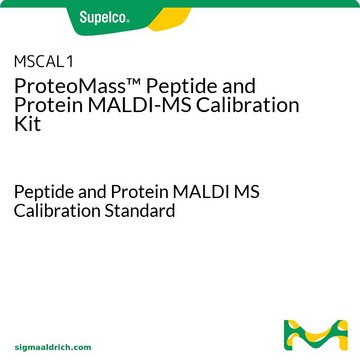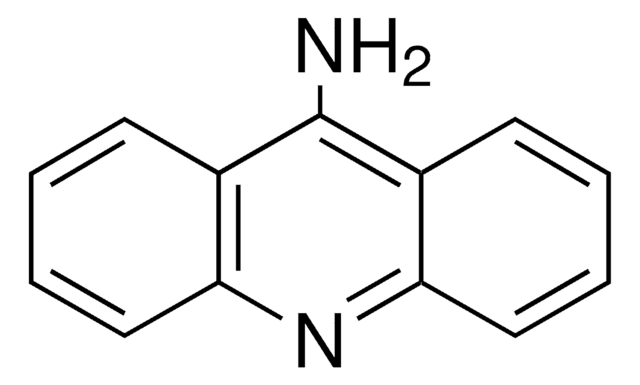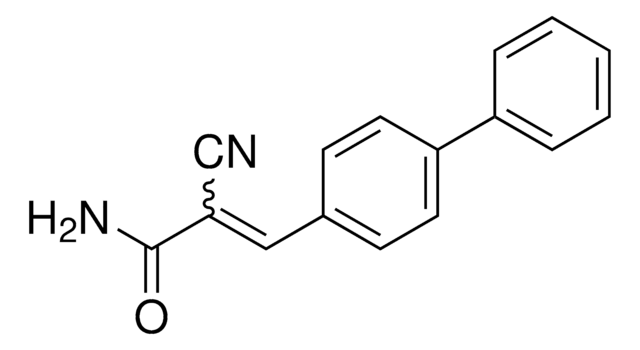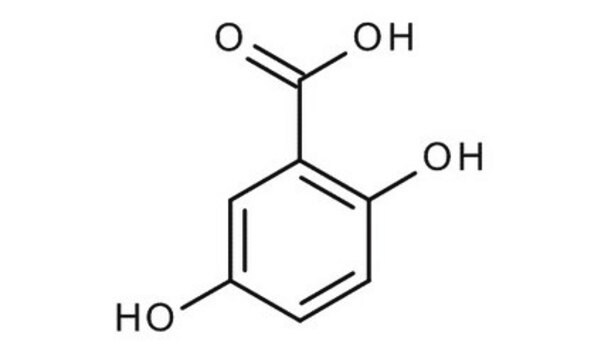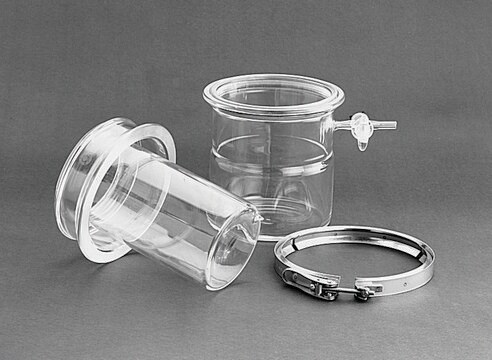50862
Super-DHB
suitable for matrix substance for MALDI-MS, ≥99.0%
About This Item
Produits recommandés
Niveau de qualité
Pureté
≥99.0% (sum of DHB and 2-hydroxy-5-methoxybenzoic acid, HPLC)
≥99.0%
Classe(s) fonctionnelle(s) de l'analyte
polymers
Classe(s) chimique(s) de l'analyte
glycans, peptides, proteins
Technique(s)
MALDI-MS: suitable
Solubilité
methanol: 1%, clear
Traces de cations
Ca: ≤5 mg/kg
Cd: ≤5 mg/kg
Co: ≤5 mg/kg
Cr: ≤5 mg/kg
Cu: ≤5 mg/kg
Fe: ≤5 mg/kg
K: ≤5 mg/kg
Li: ≤5 mg/kg
Mg: ≤5 mg/kg
Mn: ≤5 mg/kg
Na: ≤5 mg/kg
Ni: ≤5 mg/kg
Pb: ≤5 mg/kg
Zn: ≤5 mg/kg
Adéquation
suitable for matrix substance for MALDI-MS
Description générale
Application
- Glycan and Protein Analysis of Glycoengineered Bacterial E. coli Vaccines by MALDI-in-Source Decay FT-ICR Mass Spectrometry: This study demonstrates the application of Super-DHB as a matrix in advanced mass spectrometry for the detailed characterization of glycoengineered vaccines, essential for researchers in pharmaceuticals and life science manufacturing (Nicolardi et al., 2022).
- An Improved Method for Rapid Detection of Mycobacterium abscessus Complex Based on Species-Specific Lipid Fingerprint by Routine MALDI-TOF: Highlights the use of Super-DHB in enhancing the lipid fingerprinting capabilities of MALDI-TOF mass spectrometry, critical for rapid microbial identification in medical microbiology and pharmaceutical research (Jia Khor et al., 2021).
- Discrimination of bovine milk from non-dairy milk by lipids fingerprinting using routine matrix-assisted laser desorption ionization mass spectrometry: Illustrates the role of Super-DHB in differentiating dairy and non-dairy milks based on lipid profiles using MALDI-MS, vital for food scientists and chemists in quality control and food safety (England et al., 2020).
Conditionnement
Remarque sur l'analyse
Produit(s) apparenté(s)
Mention d'avertissement
Warning
Mentions de danger
Conseils de prudence
Classification des risques
Acute Tox. 4 Oral
Code de la classe de stockage
11 - Combustible Solids
Classe de danger pour l'eau (WGK)
WGK 3
Point d'éclair (°F)
Not applicable
Point d'éclair (°C)
Not applicable
Équipement de protection individuelle
dust mask type N95 (US), Eyeshields, Gloves
Faites votre choix parmi les versions les plus récentes :
Déjà en possession de ce produit ?
Retrouvez la documentation relative aux produits que vous avez récemment achetés dans la Bibliothèque de documents.
Les clients ont également consulté
Notre équipe de scientifiques dispose d'une expérience dans tous les secteurs de la recherche, notamment en sciences de la vie, science des matériaux, synthèse chimique, chromatographie, analyse et dans de nombreux autres domaines..
Contacter notre Service technique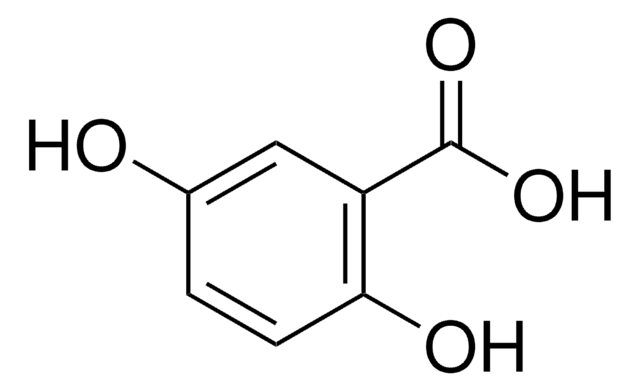

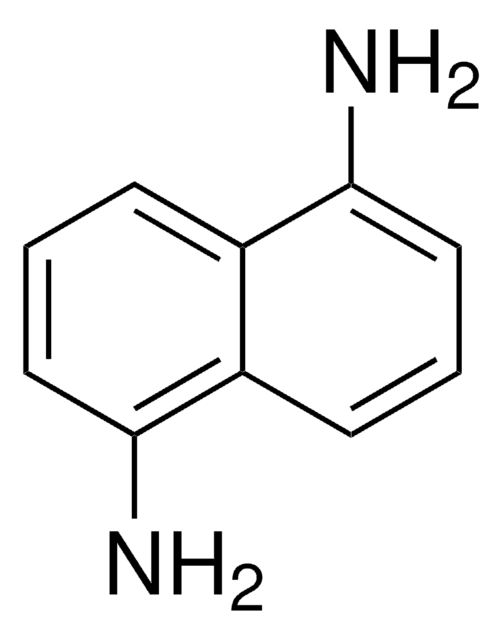
![trans-2-[3-(4-tert-Butylphenyl)-2-methyl-2-propenylidene]malononitrile matrix substance for MALDI-MS, ≥99.0% (HPLC)](/deepweb/assets/sigmaaldrich/product/structures/249/587/f8021369-f65a-413d-887d-3c8a4d2a248f/640/f8021369-f65a-413d-887d-3c8a4d2a248f.png)
